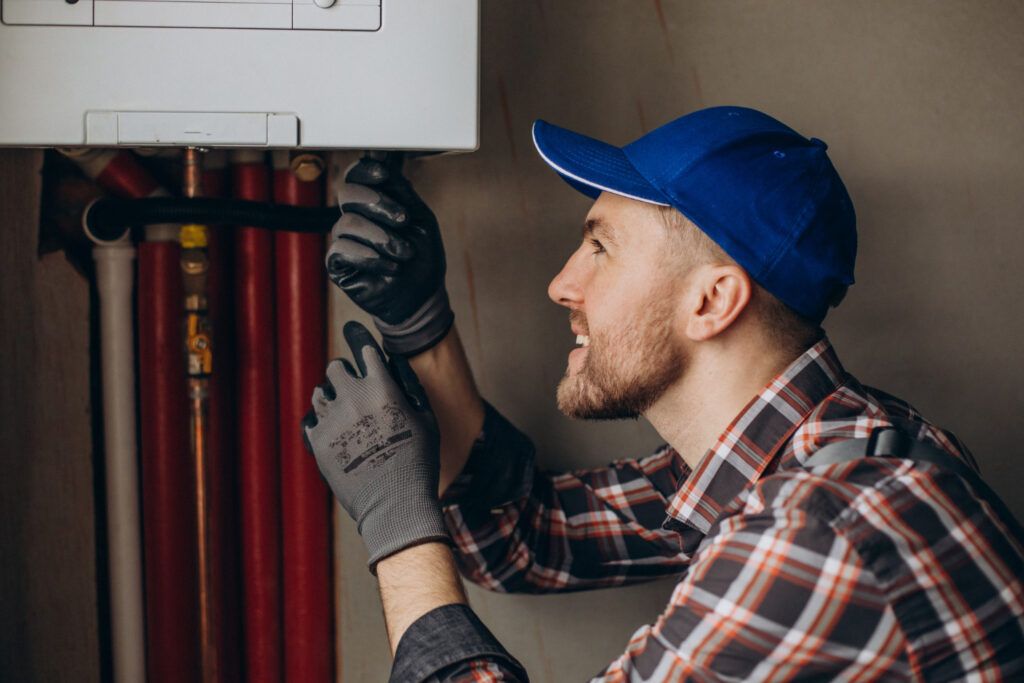How Routine Heating Maintenance Can Help Prevent Costly Repairs

Key Takeaways
- Regular maintenance keeps heating systems efficient, slashing monthly energy costs.
- Early identification of small issues prevents major and costly breakdowns.
- Consistent care helps systems last longer and perform reliably each season.
- Proper maintenance is necessary for home safety, reducing risks like carbon monoxide leaks.
Proper and consistent heating system maintenance is crucial for ensuring reliable warmth, minimizing emergency repairs, and extending system life—especially in climates where temperatures can dip abruptly. Too often, homeowners overlook the value of regular heating upkeep, only to face unexpected malfunctions later. Addressing maintenance proactively optimizes system function and saves money over time. For local assistance, especially if you notice decreasing efficiency or unusual noises, consider furnace repair in Tucson, AZ, to help diagnose and fix your heating problems before they escalate. Regular attention to your system’s needs is the key to consistent and affordable home comfort.
Routine heating maintenance is not just about avoiding a cold house in winter. It’s about safeguarding your investment and ensuring the air you breathe stays healthy while reducing energy bills year-round. Dust and debris accumulate, systems lose efficiency, and minor issues can rapidly become serious repairs.
Enhancing Energy Efficiency
An efficiently running heating system consumes less energy to keep your home comfortable. As filters clog and ductwork collects debris, your heater must work harder, driving up energy usage and costs. Scheduled filter replacements and system tune-ups maintain efficiency, with the U.S. Department of Energy noting a clean filter alone can cut energy use by 5% to 15%. Efficient systems lower monthly bills and reduce environmental impact, contributing to sustainable home operation. For more insights on energy savings, visit Energy.gov.
Preventing Unexpected Breakdowns
When minor issues go unchecked—such as a frayed blower belt or an airflow blockage—they can spiral into significant heating failures. Regular professional maintenance includes checking for worn parts, clearing dust, and ensuring all system components work as intended. This diligence identifies small, repairable issues before they become emergency calls or result in system shutdowns during extreme weather. Catching problems early is the best way to ensure year-round reliability and avoid unexpected—and often expensive—repair bills.
Extending System Lifespan
Heating systems require significant investment, so maximizing their lifespan is a smart financial move. Semi-annual inspections, cleaning, and lubrication reduce system strain and minimize component wear. Most manufacturers and HVAC experts recommend annual maintenance visits, as even minor attention helps delay the need for major replacements. Studies suggest well-maintained heaters can last several years longer than neglected units. Extending equipment life means avoiding the upfront costs and installation hassles of premature replacement.
Ensuring Safety Standards
Furnaces, boilers, and heat pumps—especially those burning gas or oil—pose safety risks if neglected. An ill-maintained system can develop gas leaks or produce dangerous levels of carbon monoxide, threatening household health. Annual maintenance checks can detect leaks, test safety controls, and ensure that detectors function properly. In addition to protecting your family, routine maintenance ensures compliance with homeowner insurance requirements and municipal safety codes.
Improving Indoor Air Quality
Heating systems circulate air throughout your home, which means filters clogged with dust, pollen, or mold compound respiratory issues and spread allergens. Regular maintenance reduces indoor air quality risks by ensuring clean air filters and ducts. In homes with pets, children, or residents with asthma, diligent filter changes are especially crucial. Cleaner air also means less dust on furniture and surfaces, making regular heating upkeep a win for your whole household’s comfort and health.
Cost Savings Over Time
Maintaining your heating system may seem like an added expense, but it delivers substantial cost savings. Preventing major repairs, delaying replacements, and improving energy efficiency can save homeowners hundreds of dollars annually. Additionally, many manufacturer warranties stipulate annual maintenance to remain valid—saving you on parts and labor in the event of future breakdowns. Proactive care manages ongoing costs while preserving the value of your HVAC investment.
Recommended Maintenance Schedule
To get the most from your heating system, adopt this simple but effective maintenance routine:
- Monthly: Inspect and, if needed, replace the air filter to promote proper airflow.
- Annually: Schedule a professional tune-up and safety check at the outset of heating season.
- As Needed: Vacuum dust from vents and clean around equipment to prevent blockages.
DIY Maintenance Tips
Handy homeowners can extend the benefits of professional maintenance with these simple tasks:
- Keep Vents Clear: Prevent blockages by arranging furniture away from heat registers.
- Seal Drafts: Apply weatherstripping or caulking to doors and windows, reducing heat loss and lowering your system’s energy demands.
- Optimize the Thermostat: Set your thermostat to consistent, energy-efficient temperatures and consider a programmable model for automated savings.
Investing a little time in regular maintenance protects your comfort, safety, and finances throughout the heating season. With professional care and attentive DIY efforts, you can keep your heating system running resiliently for years.
